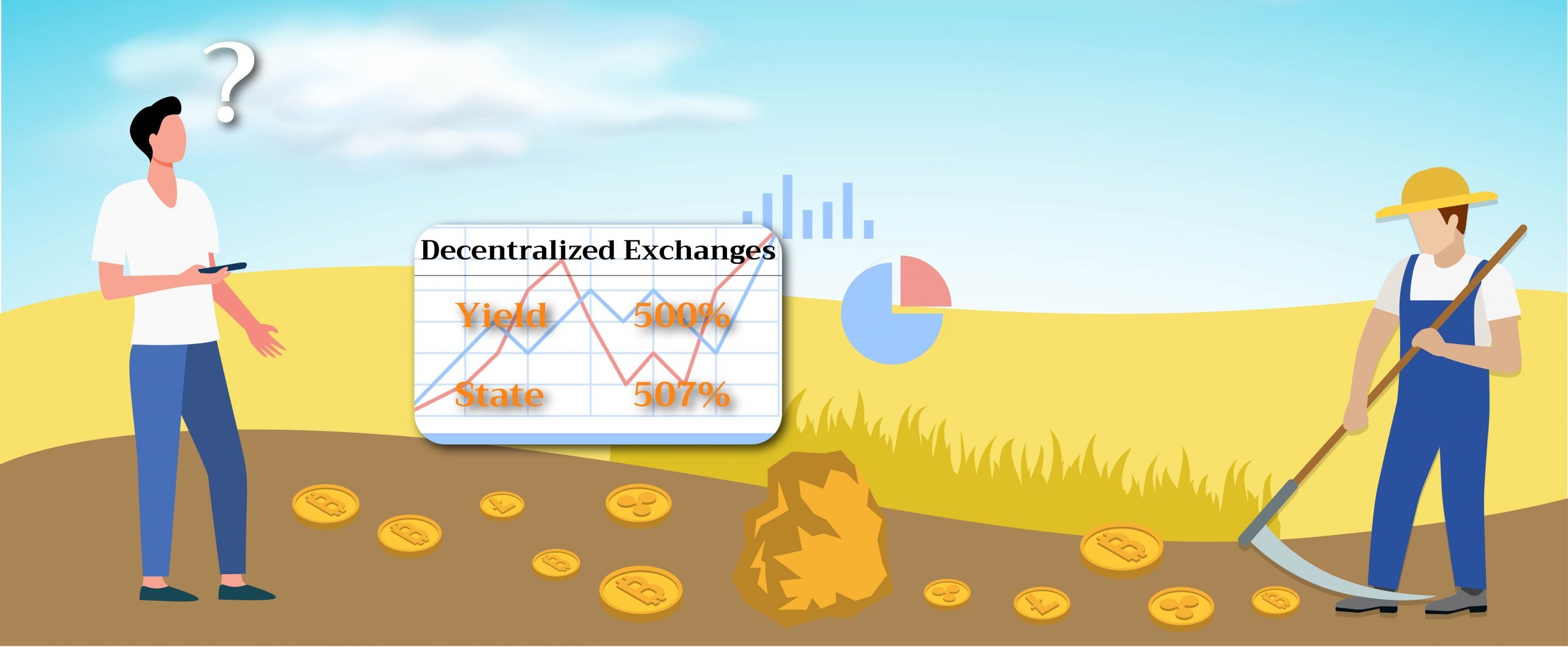DeFi And Yield Farming

DeFi And Yield Farming
DeFi is an open and worldwide website financial system — an alternative to an opaque, rigidly regulated, and decade-old infrastructure and procedure. It offers you control over your money and visibility. It offers you an opportunity to expose your local currency or banking opportunities to global markets and alternatives. Defi goods are available to anybody whose internet-connected financial services and their customers are primarily owned and managed. Crypto has so far flowed through DeFi apps for ten thousand billion dollars and is increasing daily.
DeFi is a collective name for financial goods and services available to anybody with an Internet connection that can utilize Ethereum. DeFi always offers markets and there are no central authorities that may stop payments or refuse you any access. Formerly sluggish and human-risk services are now automatically and safely processed by code that can be monitored and verified by anybody.
DeFi Apps Are Based On The Network Ethereum And Offer
Decentralized Exchanges (DEXes)
Users must also trust their cash in the form of a cryptocurrency, a middleman. Decentralized commerce increases the degree to which you maintain ownership of money and truly make the trade peer-to-peer.
Stablecoins
Crypto market volatility prevented individuals from joining the revolution. A Stablecoin is a DeFi that has an asset outside the crypto ecosystem and whose value is tied to. No changes in prices are wild, thus its name.
Lending Platforms:
Imagine Bob wants money for your friend. You don't want to lend it since it doesn't provide. He doesn't want to go to a bank either for some reason. In such a scenario, he can resort to the DeFi loan platform that accepts a collateral crypto token. These systems connect creditors to creditors and create intelligent self-executing contracts that a bank/intermediary needs not to handle.
Wrapped Bitcoins (WBTC):
Wrapped Bitcoins are a means to benefit the Ethereum DeFi ecosystem for Bitcoin owners. This lends bitcoins to using DeFi loan services to earn their interest.
Markets Of Prediction:
People always bet because they love to predict their future, and if they win it is easy to cash out. You bet on a soccer match, a presidential election, and so on. For the same purpose, DeFi forecasting markets are only without any intermediary. Intelligent contracts distribute assets when the betting conditions are fulfilled.
Yield Farming
- Yield farming is a method that allows bitcoin users to lock up their assets in exchange for incentives. It is a mechanism which may be used by investment of crypto in a DeFi market to earn fixed or variable income.
- Yield farming entails lending bitcoin over the Ethereum network. The amount lent is refunded by interest if banks loan fiat money. The idea is the same as yield farming: bitcoin that would otherwise be exchanged or lent a wallet through DeFi protocols to earn a return.
- Yield farming is often done out on Ethereum using ERC-20 tokens, with the incentives also being in the form of an ERC-20 token.
How Does Yield Farming Work?
- The initial stage in yield farming is to deposit cash into a liquidity pool, which is effectively a smart contract containing funds. These pools fuel a marketplace where users may trade, borrow, or lend tokens. You've officially become a liquidity provider after you've added your cash to a pool.
- You will be paid with fees produced by the underlying DeFi platform in exchange for locking up your findings in the pool. It is important to note that investing in ETH does not qualify as yield farming. Instead, yield agriculture is the practise of giving ETH to Aave and then receiving a return under a decentralised non-custodial monetary protcol.
- Reward tokens also may be placed in liquidity pools and the user can transfer his assets across protocols to get higher rates of return.
- This is difficult. It's complicated. Yield farms often know the Ethereum network and its complexity very well and shift their assets to other DeFi platforms in order to maximise their earnings.
- Not simple and certainly not easy money. It's not easy. Liquidity suppliers are also compensated on the basis of the liquidity they provide, so those who make large profits are paid equally heavily.





